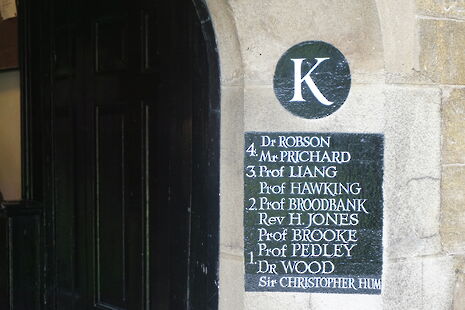Cambridge’s attitude to access is skin-deep
Shadab Ahmed argues that post-offer support is pivotal to securing equality in access between state and private school students

Access at Cambridge is generally considered to refer to the process of actively encouraging students from a wide range of backgrounds to apply to the university. Whilst this is of course incredibly important, I believe access must delve into the areas which are often ignored; post-offer support, in particular, is crucial.
Admissions staff have indicated that the number of offer-holders who miss their offers disproportionately affects students from the maintained sector. It is evident that more needs to be done to support the students who are far more likely to miss their offer due to their background. We need to acknowledge that access does not stop once such students have applied and received an offer.
“We must focus on increasing access by minimising the social transition into life [at Cambridge]”
As such, numerous Cambridge colleges have very recently decided to join ‘Project Access’. The scheme's ethos is that those from disadvantaged backgrounds will receive support in the form of written content and mentors, who can arrange Skype sessions to discuss school work, applications and even wider reading. The enterprise is invaluable, with 63% of mentees receiving offers from top universities, compared to the national average of 15% from the demographic targeted. This is a new pilot scheme for the university, and as such, no data is yet available on the success of Cambridge-specific admissions.
Academic “failure”, however, is not the sole reason for the shockingly unequal number of acceptances per offer between the maintained and independent sectors. The statistics also include those who decide to turn down their offer. This in itself is a failing of the system in which not every angle of access is fully appreciated and dealt with. Yusuf Uddin, Target and Access Executive at Fitzwilliam College, stated that he “personally [knew of] people who had an offer but either turned it down […] because they felt Cambridge wasn’t for them”. This may not be an isolated incident; in the 2016 cycle, some colleges show more than a 3% decrease in the proportion of students from the maintained sector when comparing offers with confirmed places. This number, amounting to over 500 students across the university, is not simply accounted for only by those students who miss their offer. The duality must be considered when thinking about access.
A multifaceted approach must thus be pursued if access to Cambridge is to be developed further. Not only must we encourage people to apply, but we must also focus on increasing access by minimising the social transition into life here. It is undeniable that there are numerous traditions and formalities that are alien to many before attending Cambridge: formal halls, matriculation and a Latin grace, to name a few. Yet the culture shock extends beyond this: even in extracurricular activities such as theatre, those who have a background in the “arts” provided by private education are bound to be more confident and comfortable in participating in life here.
The university needs to widen efforts in reducing the unfamiliarity many students face when coming to Cambridge. Suggestions for better support may include a post-offer shadowing scheme. New access opportunities like these would show that access is of the utmost importance and that it continues to support those from disadvantaged backgrounds through all stages of their journey. These events would be crucial and truly show that Cambridge really is for everyone, regardless of their background.
As an access officer myself, I know that there are many people, staff and students, within the university working incredibly hard to improve access. This is a difficult task, especially considering the historic elitism which continues to echo through Cambridge. Though it may, at times, seem an uphill struggle, a new approach which supports offer-holders both up to and beyond receiving their offers and exam results is a necessity.
Such action should help combat the potentially unequal, perhaps even discriminatory, results which may arise in the application process due to the introduction of additional entrance tests, necessary following the current government’s A Level reforms which removes the AS levels upon which Cambridge applicants have typically been judged.
Cambridge has a duty to the bright minds of the younger generation, particularly those from disadvantaged social and economic backgrounds. Access should not stop once offers are made. The university must support students after offers are made, because access to Cambridge goes much deeper than getting an offer. Access must change in order for everyone, from any background, to reach their full potential – a sentiment foundational to the institution itself
 Features / Should I stay or should I go? Cambridge students and alumni reflect on how their memories stay with them15 December 2025
Features / Should I stay or should I go? Cambridge students and alumni reflect on how their memories stay with them15 December 2025 News / Dons warn PM about Vet School closure16 December 2025
News / Dons warn PM about Vet School closure16 December 2025 News / Cambridge study finds students learn better with notes than AI13 December 2025
News / Cambridge study finds students learn better with notes than AI13 December 2025 News / SU reluctantly registers controversial women’s soc18 December 2025
News / SU reluctantly registers controversial women’s soc18 December 2025 News / News In Brief: Michaelmas marriages, monogamous mammals, and messaging manipulation15 December 2025
News / News In Brief: Michaelmas marriages, monogamous mammals, and messaging manipulation15 December 2025









